This article was co-authored by Liana Georgoulis, PsyD. Dr. Liana Georgoulis is a Licensed Clinical Psychologist with over 10 years of experience, and is now the Clinical Director at Coast Psychological Services in Los Angeles, California. She received her Doctor of Psychology from Pepperdine University in 2009. Her practice provides cognitive behavioral therapy and other evidence-based therapies for adolescents, adults, and couples.
There are 14 references cited in this article, which can be found at the bottom of the page.
wikiHow marks an article as reader-approved once it receives enough positive feedback. In this case, 100% of readers who voted found the article helpful, earning it our reader-approved status.
This article has been viewed 141,354 times.
Bipolar disorder, previously called manic depressive disorder, causes dramatic shifts in mood, energy level and behavior. People with the condition experience intense highs and lows. While signs of manic depressive disorder may vary widely, you can try to identify symptoms by checking for signs of mania, depression, or a combination of both (i.e. mixed episode).[1] However, keep in mind that only a licensed psychologist or psychiatrist can adequately diagnose this condition. If someone you love shows signs, learn how to get them the help they need.
Steps
Identifying the Signs of Mania
-
1Learn what bipolar disorder is. Manic depression (bipolar disorder) is not the same as clinical depression, although clinical depression is one of the symptoms. Someone with bipolar disorder may experience manic “highs” with increased confidence or extreme irritability. They may also have periods of clinical depression. Some people may go from manic to depressive periods rapidly while others will have a “normal” period in between.[2] There are three main types of bipolar disorder: bipolar I, bipolar II, and cyclothymia. To be properly diagnosed with bipolar disorder, you need to see a psychologist, psychiatrist, or clinically licensed therapist or counselor. Additionally, diagnosis will require the presence of three or more symptoms, including:[3]
- Inflated ego and self-esteem, and delusions of grandeur
- Increased goal-directed activity, or excessive planning of new ideas and ventures without considering the risks
- Racing thoughts or flight of ideas (rapid flow of thoughts or ideas)
- Decreased need for sleep
- Pressured, rapid speech
- Reckless and promiscuous behavior
- Increased distractibility
-
2Identify who is affected and at risk. Almost 3% of the US population is affected by bipolar disorder. Men and women are equally at risk and are usually diagnosed between the ages of 18-25. Having one or more family members with a diagnosis of bipolar disorder will increase the risk.[4] An individual's genetics and the environment they live in can also affect their risk.
- There is a higher rate of bipolar diagnosis in developed, high-income countries.
- Various environmental and personal stressors can also trigger onset of bipolar disorder.
Advertisement -
3Watch for a decreased amount of sleep. People suffering from mania feel very energetic despite the fact that they are not getting enough sleep.[5] Your loved one may sleep only a few hours each night, or they may go days without any sleep at all.
- In fact, if you have a younger loved one with chronic sleep disturbance, this could be an early indicator of bipolar.[6]
- In order for these symptoms to meet the criteria for mania, they must occur for at least one week.
-
4Listen to the speed and consistency of the person's speech.[7] During a manic episode, people talk very quickly. They also change topics so frequently that others are unable to follow the conversation. If your loved one exhibits such speech patterns that are remarkably different from their usual speech, they may be in a manic episode.
- This symptom, known as pressured speech, happens because the person has racing thoughts and excess energy. In a sense, their speech patterns are a sign of what’s going on inside their heads.[8]
- Keep in mind that you are checking for dramatic changes in a person's speech. Some people speak in a fast, pressured manner naturally, so be aware of any noticeable changes.
-
5Look for inflated self-esteem. Delusions of grandeur and exciting though far-fetched ideas occur in individuals with mania. People in the throes of mania may believe themselves capable of virtually anything, and they won’t be subjected to the reasoning of others.
- They are euphoric and energized. The person may stay up all night brainstorming projects or goals. They may view themselves as especially destined for greatness by God.[9]
-
6Check for poor judgment and decision-making. Mania also shows up in a person’s choices. This is sometimes seen through impaired judgment, recklessness or impulsive behavior.[10] If a person is manic, they simply won’t consider the consequences of their actions.
- They may engage in risky activities like unprotected sex, drug and alcohol use, gambling, or excessive spending.[11]
-
7Be wary of psychotic symptoms.[12] Although psychosis is generally seen in people with schizophrenia and similar conditions, people with bipolar disorder can experience a break from reality during extreme manic episodes. Psychotic symptoms exhibited in bipolar include the experience of hallucinations or delusions.[13]
- Hallucinations are sensory experiences, such as hearing, feeling or seeing something that no one else does.
- Delusions are persistent yet false beliefs like believing that TV characters are sending you special messages.
- More often than not, someone with psychosis will need to be hospitalized. This will prevent the person from harming themselves or others. The hospital can also provide mood and sleep stabilization and medication for their symptoms.
-
8Consider the potential for hypomania. Bipolar II disorder is a condition that involves a milder form of mania along with an episode of depression. This less severe form of mania is called hypomania. Hypomanic episodes are shorter in duration, usually lasting about four days or more. It involves the general symptoms of mania in a more subtle form. Because symptoms like increased energy and flight of ideas may not be as extreme as in full-blown mania, hypomania symptoms are often overlooked.[14]
- Psychosis is not present during hypomanic episodes.
- Hypomania can be a characteristic expressed within all the Bipolar subtypes, but the full manic episodes only occur in Bipolar I.
Identifying the Signs of Depression
-
1Spot the signs and symptoms of depressive phase. To be clinically diagnosed with bipolar in the depressive phase, the individual must have experienced the depressive episode for at least two weeks. They must have five of the following signs and symptoms:[15]
- Sad mood for much of their day
- Anhedonia or decreased interest and pleasure in their normal activities
- Fluctuations in appetite and weight
- Insomnia (inability to sleep) or hypersomnia (excessive sleepiness)
- Fatigue and/or loss of energy
- Restlessness or increased motor activity, or slowing down of their normal movement
- Decreased memory, inability to make decisions, and difficulty concentrating
- Feeling worthless, hopeless, helpless or guilty
- Considering or imagining suicide
-
2Watch for changes in sleeping patterns. During a depressive episode, a person may sleep more or less than normal. What’s more, sleep may be broken and disrupted, with them waking up sooner than they would like. Your loved one may stay in their bed all day or have trouble getting their day started.[16]
- In order for these symptoms to meet the criteria for a depressive episode, they must interfere with the person’s functioning for a period of at least two weeks.[17]
-
3Notice if the person's appetite and weight have changed. The negative feelings associated with a depressive episode may lead to the sufferer eating more than normal. The person may gain a significant amount of weight in a short period of time, particularly if they are also engaging in sedentary activities like sleeping all day.[18]
- On the flip side, a depressive episode may also translate to eating much less than usual and losing a fair bit of weight in a short period of time due to lack of appetite.[19]
-
4Pay attention to feelings of hopelessness, sadness or emptiness. During periods of depression, a person suffering from bipolar disorder may have difficulty feeling pleasure, even during activities they once cared about such as sex. This feeling of dejection is one of the most classic signs of depression.[20]
-
5Look for signs of fatigue and overall sluggishness. A concept known as psychomotor slowness describes a person with bipolar depression. In contrast to a manic episode, someone who is depressed may move and speak quite slowly. They may lack energy to do the basic tasks of everyday life.[21]
- Fatigue can be a sign of a medical condition like hypothyroidism or even unipolar depression (that is, depression without mania). Be sure to examine other symptoms before assuming your loved one has manic depression.
-
6Be cautious of suicidal symptoms. People who experience depression may be at an increased risk of suicide. It’s important to know how to recognize suicidal behavior, because being able to just might help you save your loved one’s life. Furthermore, if a sufferer has an immediate family member who has died by suicide or they are using alcohol or drugs, their risk is even higher. Signs of suicidal behavior may include:[22]
- Obsessing over death or loss
- Giving things away, even prized possessions
- Saying “goodbye” to friends and family
- Researching suicide
- Practicing the act, such as looking for a place and gathering materials (e.g. pills or a rope)
-
7Understand mixed episodes. In some individuals, an episode of mania and depression may occur at the same time. Referred to as a mixed episode (or, more recently, “mixed features”), this may be characterized by simultaneous feelings of despair coupled with increased energy.
- Pay attention if depression is accompanied by agitation, anxiety, irritability or restlessness. Look for combinations of high energy and low mood during mixed episodes.
- Because people in mixed episodes are experiencing a two-polar cycle of both highs and lows, they may also be at increased risk of suicide. If you see signs of both mania and depression in someone you know, get them help right away.[23]
Getting the Person Help
-
1Brainstorm an appropriate way to broach the topic. If your loved one fits the criteria for many of the above symptoms, they need to seek professional help as soon as possible. This can be a challenge because many people with mental illness are in denial about their symptoms. Before discussing the issue, think long and hard about how you will approach the subject.
- You might watch them for a while and conduct research on bipolar disorder to support your observations.
- You might also talk with other friends or relatives to see if they have noticed the same issues.
-
2Show your concern. Be gentle and patient when you bring up the topic to your loved one. You want to send the message that you are concerned and believe that getting help is the only way they can get better. Avoid casting any judgment or coming off like you are giving the person an ultimatum. Be a cooperative problem-solver.[24]
- Say something like, “Jane, I have noticed you haven’t been sleeping very much lately. This is a surprise because a few weeks ago you stayed in bed all day. I also noticed some questionable charges on your credit card. I’m worried about you, sweetie. How about you go visit the doctor for a checkup?”
-
3Offer to help in some way. Don’t just bring up the subject and expect the person to follow through on their own. You might share some of your research or even suggest a psychiatrist in your area. Offer to join them at the appointment for moral support.
- For instance, you might ask, “What can I do to help you? If you want I can help you find a doctor, or go to an appointment with you. I just want to see you doing better.”
-
4Learn what types of psychotherapy are available. Bipolar disorder can be managed with proper psychotherapy, medication, healthy coping skills, and strong support systems. A good psychotherapist will be able to teach the patient and family how to recognize their triggers to help avoid a relapse.[25] Psychotherapists can teach the patient and family healthy coping skills, which may decrease tendencies toward risky and unsafe behaviors.
- Coping skills may include writing in a journal, improving sleeping habits, managing stress through relaxation techniques, and maintaining daily routines.
- Both formal and informal support systems--such as family, friends, and bipolar support groups-- are important to helping the individual avoid the onset of symptoms. A psychotherapist will help you identify and connect with various support systems.
- Although the use of cognitive behavioral therapy will help reduce relapse, it is important that the patient and family work with the therapist to develop an emergency plan in case there is a relapse.
-
5Know when to back off. As upsetting as it may be, this person may not want your help. Or, they may have trouble coming to terms with their illness. If they are not in any immediate danger (i.e. showing signs of suicide), you may need to give them some space. But don’t completely drop the issue—just wait awhile before you bring it up again.
- Say, “It seems like I have upset you and that wasn’t my intention. I’ll give you some space to think about it. Let’s talk again another time.”
- If the person is in danger of committing suicide, don’t back off. Call your local emergency services department or a suicide hotline for help.[26]
- If you are in the U.S., call or text the Suicide and Crisis Lifeline at 988. If in the U.K., call Samaritans at 116 123.
Expert Q&A
-
QuestionHow can I help someone who is in a manic state?
 Liana Georgoulis, PsyDDr. Liana Georgoulis is a Licensed Clinical Psychologist with over 10 years of experience, and is now the Clinical Director at Coast Psychological Services in Los Angeles, California. She received her Doctor of Psychology from Pepperdine University in 2009. Her practice provides cognitive behavioral therapy and other evidence-based therapies for adolescents, adults, and couples.
Liana Georgoulis, PsyDDr. Liana Georgoulis is a Licensed Clinical Psychologist with over 10 years of experience, and is now the Clinical Director at Coast Psychological Services in Los Angeles, California. She received her Doctor of Psychology from Pepperdine University in 2009. Her practice provides cognitive behavioral therapy and other evidence-based therapies for adolescents, adults, and couples.
Licensed Psychologist When in a manic state, a person's frontal lobe isn't functioning properly, so all of their ideas and impulses make sense in their mind. During that time, they really need a helping hand. If you are a part of their support system, you can make sure that they are in a safe space and getting medical treatment. Be a guardian to help them.
When in a manic state, a person's frontal lobe isn't functioning properly, so all of their ideas and impulses make sense in their mind. During that time, they really need a helping hand. If you are a part of their support system, you can make sure that they are in a safe space and getting medical treatment. Be a guardian to help them. -
QuestionHow do you manage bipolar disorder symptoms?
 Liana Georgoulis, PsyDDr. Liana Georgoulis is a Licensed Clinical Psychologist with over 10 years of experience, and is now the Clinical Director at Coast Psychological Services in Los Angeles, California. She received her Doctor of Psychology from Pepperdine University in 2009. Her practice provides cognitive behavioral therapy and other evidence-based therapies for adolescents, adults, and couples.
Liana Georgoulis, PsyDDr. Liana Georgoulis is a Licensed Clinical Psychologist with over 10 years of experience, and is now the Clinical Director at Coast Psychological Services in Los Angeles, California. She received her Doctor of Psychology from Pepperdine University in 2009. Her practice provides cognitive behavioral therapy and other evidence-based therapies for adolescents, adults, and couples.
Licensed Psychologist Generally, a mental health professional will help manage the symptoms. They'll likely prescribe medication and therapy. Additionally, healthy coping skills and a strong support system can help.
Generally, a mental health professional will help manage the symptoms. They'll likely prescribe medication and therapy. Additionally, healthy coping skills and a strong support system can help.
Warnings
- Suicide risk is greatest when a person is suffering from a mixed episode. If they're talking about killing themselves, call a suicide hotline immediately. In the US, you can call or text the Suicide and Crisis Lifeline at 988.⧼thumbs_response⧽
References
- ↑ Liana Georgoulis, PsyD. Licensed Psychologist. Expert Interview. 6 September 2018.
- ↑ https://www.psychiatry.org/patients-families/bipolar-disorders/what-are-bipolar-disorders
- ↑ https://www.helpguide.org/articles/bipolar-disorder/bipolar-disorder-signs-and-symptoms.htm
- ↑ https://www.psychiatry.org/patients-families/bipolar-disorders/what-are-bipolar-disorders
- ↑ Liana Georgoulis, PsyD. Licensed Psychologist. Expert Interview. 6 September 2018.
- ↑ https://www.ncbi.nlm.nih.gov/pmc/articles/PMC3321357/
- ↑ Liana Georgoulis, PsyD. Licensed Psychologist. Expert Interview. 6 September 2018.
- ↑ https://www.hopkinsguides.com/hopkins/view/Johns_Hopkins_Psychiatry_Guide/787018/all/Mania
- ↑ https://psychcentral.com/disorders/manic-episode/
- ↑ Liana Georgoulis, PsyD. Licensed Psychologist. Expert Interview. 6 September 2018.
- ↑ http://www.mayoclinic.org/diseases-conditions/bipolar-disorder/symptoms-causes/dxc-20307970
- ↑ Liana Georgoulis, PsyD. Licensed Psychologist. Expert Interview. 6 September 2018.
- ↑ http://www.healthyplace.com/bipolar-disorder/psychosis/psychosis-symptoms-what-are-hallucinations-and-delusions/
- ↑ http://www.mayoclinic.org/diseases-conditions/bipolar-disorder/symptoms-causes/dxc-20307970
- ↑ https://www.mayoclinic.org/diseases-conditions/bipolar-disorder/symptoms-causes/syc-20355955
- ↑ https://psychcentral.com/lib/phases-and-symptoms-of-bipolar-disorder/
- ↑ http://www.nami.org/Learn-More/Mental-Health-Conditions/Bipolar-Disorder
- ↑ https://www.mayoclinic.org/diseases-conditions/bipolar-disorder/symptoms-causes/syc-20355955
- ↑ https://psychcentral.com/lib/phases-and-symptoms-of-bipolar-disorder/
- ↑ https://psychcentral.com/lib/phases-and-symptoms-of-bipolar-disorder/
- ↑ https://www.helpguide.org/articles/bipolar-disorder/bipolar-disorder-signs-and-symptoms.htm
- ↑ https://www.helpguide.org/articles/bipolar-disorder/bipolar-disorder-signs-and-symptoms.htm
- ↑ http://www.healthyplace.com/blogs/breakingbipolar/2011/08/mixed-moods-in-bipolar-the-most-dangerous-mood/
- ↑ https://www.nimh.nih.gov/health/publications/bipolar-disorder/index.shtml
- ↑ Liana Georgoulis, PsyD. Licensed Psychologist. Expert Interview. 6 September 2018.
- ↑ https://www.helpguide.org/articles/bipolar-disorder/helping-a-loved-one-with-bipolar-disorder.htm
About This Article
To spot a manic depressive person, check for poor judgment and decision-making through activities like unprotected sex, excessive spending, or substance abuse, since these can be signs of a manic episode. You should also look for delusions of grandeur and exciting, yet far-fetched ideas that show the person thinks they are capable of virtually anything or destined for greatness. In addition to manic episodes, the person must also have experienced a depressive episode for at least two weeks. Take note if the person is feeling worthless, considering suicide, or shows other intense signs of depression. Watch their appetite as well, and note if they are eating significantly less or more than usual or if they are gaining weight over a short amount of time. For more help from our co-author, like how to bring up your concerns with this person, read on.


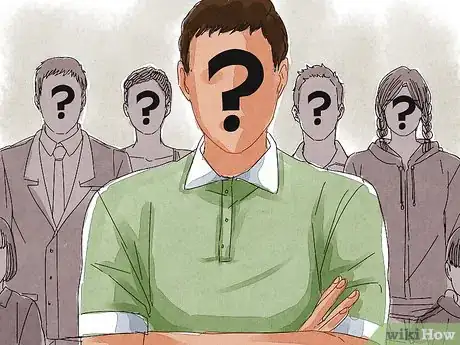
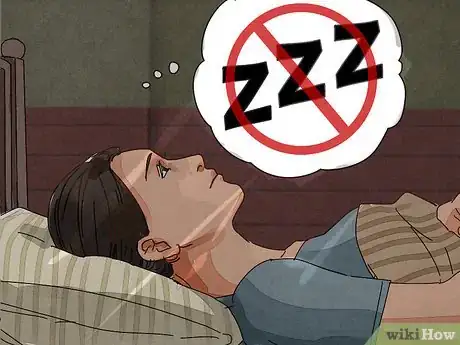
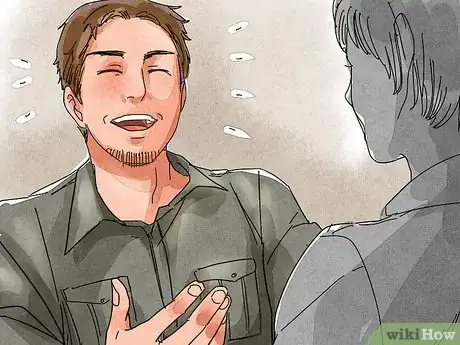


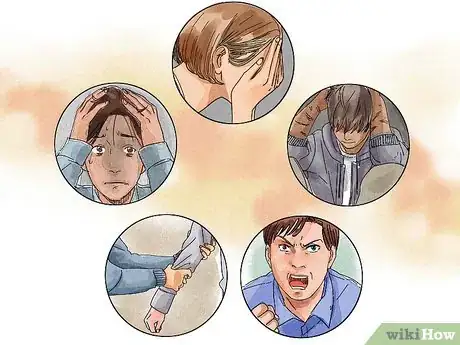
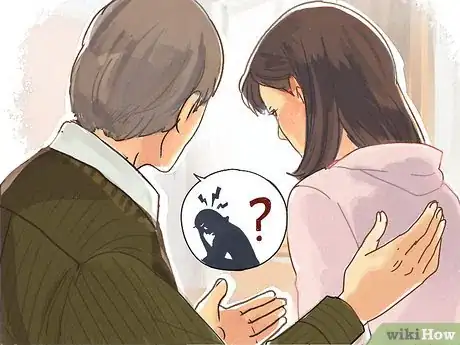
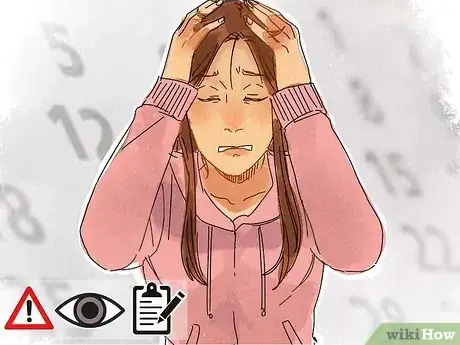
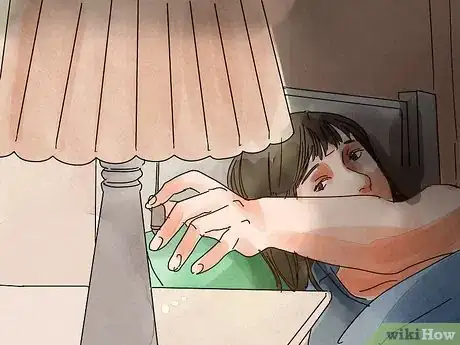



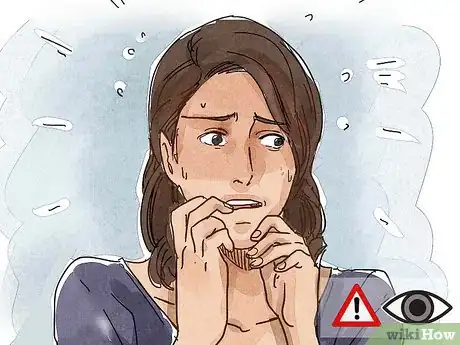



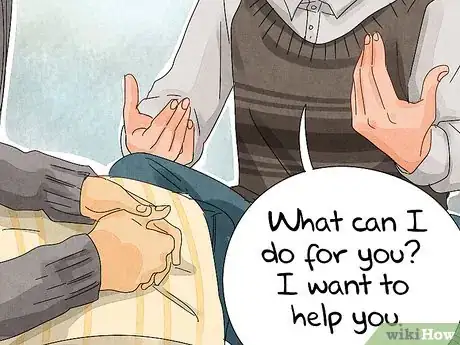
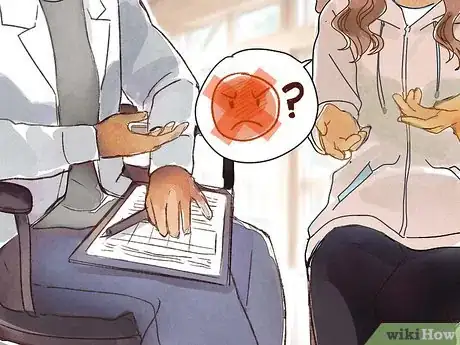
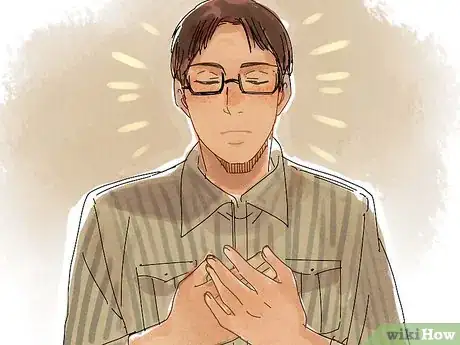

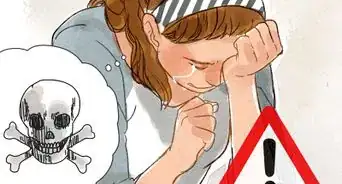





-Episode-Step-22.webp)






















































Medical Disclaimer
The content of this article is not intended to be a substitute for professional medical advice, examination, diagnosis, or treatment. You should always contact your doctor or other qualified healthcare professional before starting, changing, or stopping any kind of health treatment.
Read More...